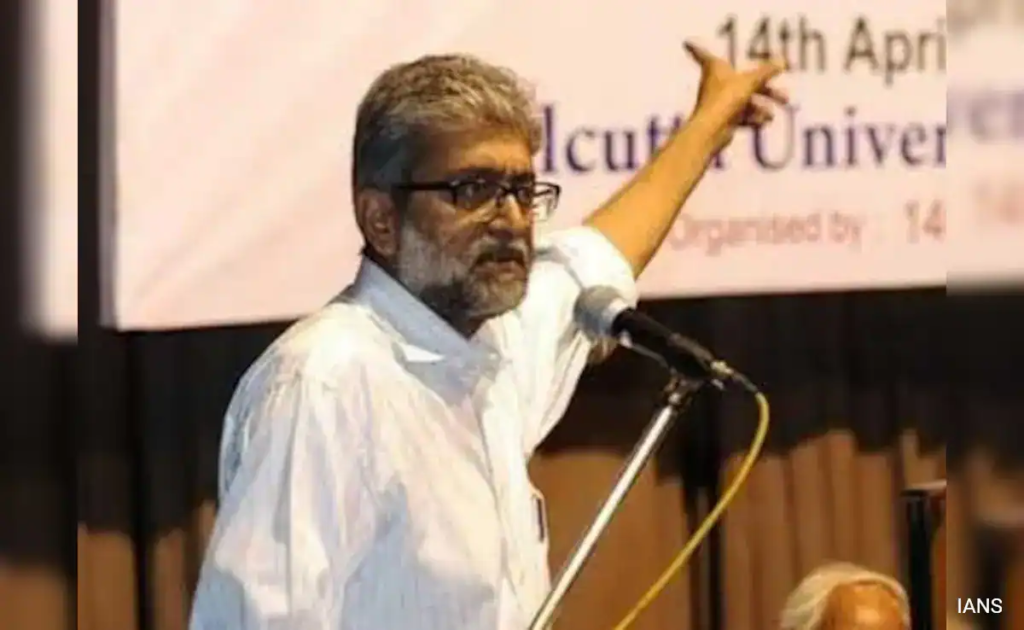Supreme Court Grants Bail
Supreme-In a significant development, the Supreme Court of India has granted bail to activist Gautam Navlakha in the highly contentious Elgar Parishad-Maoist links case. This decision comes after a prolonged legal battle and marks a crucial juncture in the ongoing debate surrounding civil liberties and the state’s response to dissent.
Supreme-A bench comprising Justices MM Sundresh and SVN Bhatti delivered the verdict, refusing to extend the stay imposed by the Bombay High Court on the bail granted to Mr. Navlakha in the case. However, the court directed Mr. Navlakha to pay ₹20 lakh towards expenses for security during his house arrest, highlighting the gravity of the allegations against him.

Supreme-The bench’s decision was underpinned by the acknowledgment that the trial process in such cases tends to be protracted, often spanning several years. Recognizing the prolonged period Mr. Navlakha had spent in jail without the framing of charges, the court deemed it fit not to prolong his detention any further. The apex court’s observation on the potential length of the trial underscores the significance of ensuring timely justice and preventing undue hardship to the accused.
Supreme-It’s essential to delve into the specifics of the Elgar Parishad-Maoist links case to understand the context of Mr. Navlakha’s bail application. The case stems from the allegation that the Elgar Parishad conclave held in Pune on December 31, 2017, was orchestrated by Maoists and allegedly led to violence the following day at Bhima Koregaon. The Maharashtra Police initially investigated the matter, leading to the arrest of several activists, including Mr. Navlakha, under various charges, including sedition.
The Bombay High Court’s decision to grant bail to Mr. Navlakha on December 19, the previous year, marked a significant turning point in the legal battle. However, the stay on the bail order, sought by the National Investigation Agency (NIA) to file an appeal in the Supreme Court, delayed its implementation. The Supreme Court’s subsequent ruling has now paved the way for Mr. Navlakha’s release, pending trial.
The decision to grant bail to Mr. Navlakha raises pertinent questions about the balance between national security concerns and individual freedoms, particularly freedom of expression and dissent. Critics of the state’s approach argue that cases like the Elgar Parishad-Maoist links case are often politically motivated, aimed at silencing dissenting voices and curbing civil liberties. They contend that the prolonged detention of activists without trial undermines the fundamental principles of democracy and the rule of law.
On the other hand, proponents of the state’s actions argue that stringent measures are necessary to combat threats to national security, including alleged Maoist insurgency. They assert that individuals like Mr. Navlakha, with purported links to banned organizations, pose a significant risk to the country’s stability and must be dealt with firmly within the ambit of the law.
The legal journey of Mr. Navlakha’s bail application sheds light on the complexities of India’s criminal justice system, particularly concerning cases involving allegations of sedition and terrorism. The prolonged detention of individuals awaiting trial is not uncommon in such cases, often leading to concerns about the violation of their rights and the principle of presumption of innocence until proven guilty.
Moreover, the role of investigative agencies like the NIA and their influence on legal proceedings has come under scrutiny in high-profile cases such as this. Critics argue that the NIA’s intervention in Mr. Navlakha’s bail matter reflects a broader trend of central agencies encroaching upon the jurisdiction of state authorities, raising questions about federalism and the separation of powers.
In granting bail to Mr. Navlakha, the Supreme Court has reaffirmed the principle of individual liberty and the importance of timely justice. However, the court’s directive to pay a substantial amount towards security expenses underscores the seriousness of the allegations against him. It remains to be seen how this development will impact the broader discourse on civil liberties and the state’s response to dissent in India.
In conclusion, the Supreme Court’s decision to grant bail to activist Gautam Navlakha in the Elgar Parishad-Maoist links case marks a significant development in India’s legal landscape. The case highlights the delicate balance between national security concerns and individual freedoms, raising crucial questions about the preservation of civil liberties in a democratic society. As the legal proceedings continue, it is imperative to uphold the principles of justice, fairness, and the rule of law, ensuring that the rights of all parties involved are respected and protected.
